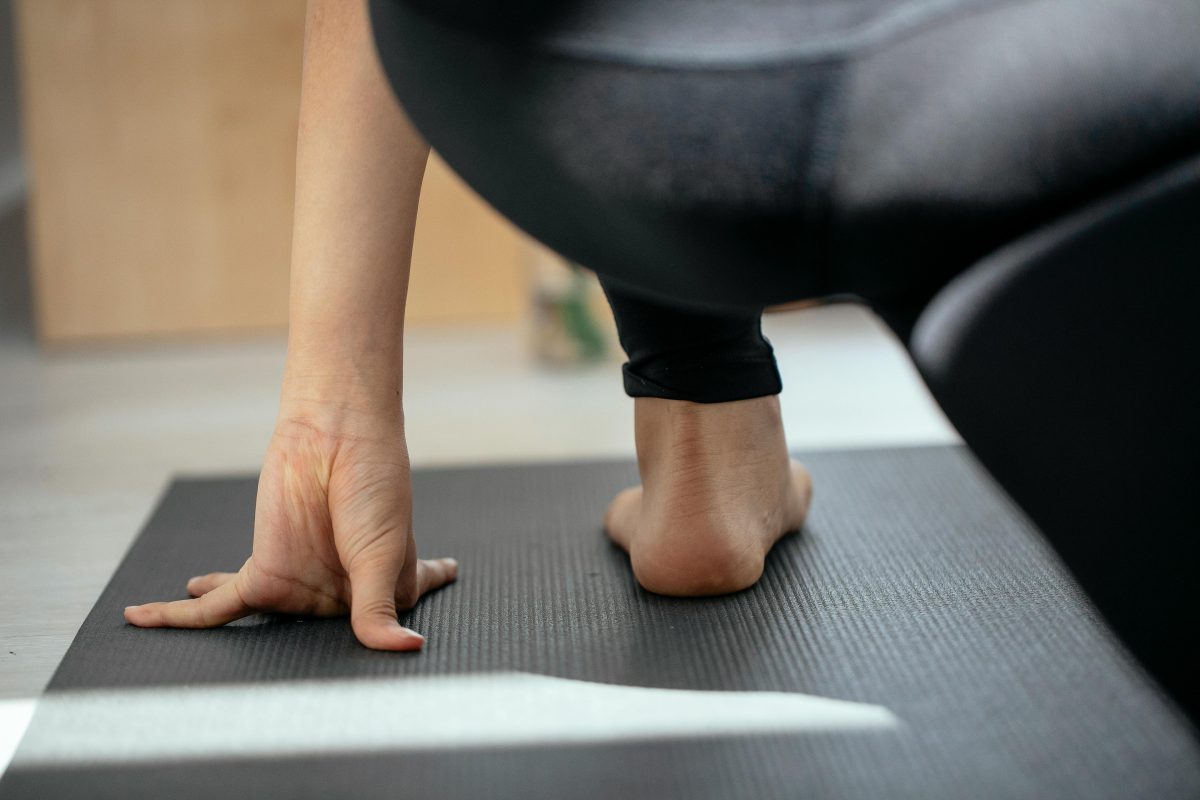Last Updated on: 14th July 2024, 09:37 am
Introduction to Holistic Fitness

At its core, holistic fitness represents a comprehensive approach to health and wellness, emphasizing the importance of nurturing not just the body, but the mind and spirit as well. This balanced methodology stands in stark contrast to traditional fitness paradigms, which often focus solely on physical strength and endurance. Holistic fitness, therefore, offers a more inclusive path to well-being, integrating various practices that promote overall health.
The significance of adopting a balanced approach to health cannot be overstated. By acknowledging the interconnectedness of our physical, mental, and emotional states, holistic fitness encourages practices that enhance overall quality of life. This contrasts sharply with conventional fitness models, which may neglect the broader spectrum of well-being in pursuit of specific physical goals.
Embracing holistic fitness means stepping into a world where every aspect of health is valued. It’s a journey that promises not just a fitter body, but a more harmonious and fulfilled life.
The Pillars of Holistic Fitness

Embarking on a holistic fitness journey means embracing a multifaceted approach to well-being. This path is built on four foundational pillars:
- Physical Fitness: Involves exercises designed to improve body strength, flexibility, and endurance.
- Mental Fitness: Focuses on nurturing the mind through stress management, mindfulness, and mental health practices.
- Emotional Fitness: Encourages individuals to explore their feelings, develop healthy coping mechanisms, and foster emotional intelligence.
- Spiritual Fitness: About connecting with one’s purpose and fostering a sense of belonging and peace.
Together, these pillars form a robust framework for holistic fitness, guiding individuals toward a more balanced, healthy, and fulfilling life.
Nutritional Balance for Holistic Fitness

The Role of Nutrition in Achieving Holistic Health
Nutrition is the fuel that powers our journey towards holistic health. It’s not just about eating less or more; it’s about eating right. The foods we choose to consume play a pivotal role in not only shaping our physical appearance but also in influencing our mental clarity, emotional stability, and spiritual well-being. A balanced diet rich in vitamins, minerals, and essential nutrients lays the foundation for a strong, vibrant body and a clear, focused mind.
Integrating a Balanced Diet with Physical Activity for Optimal Health
Like two sides of the same coin, a balanced diet and regular physical activity are inseparable when it comes to achieving optimal health. This dynamic duo works hand in hand, with nutrition providing the necessary energy for physical endeavors and exercise helping to improve metabolic health, reduce stress, and enhance mood. Together, they create a synergy that propels us towards our fitness goals, ensuring that we are not just fit, but holistically healthy.
Tips for Mindful Eating and the Importance of Listening to Your Body
- Engage all our senses in the eating process, appreciating the flavors, textures, and aromas of our food.
- Listen to our body’s hunger and fullness cues.
- Slow down and savor each bite, leading to improved digestion and satisfaction with smaller portions.
By embracing these principles, we not only nourish our bodies but also our minds and spirits, paving the way for a balanced, healthy, and fulfilling life.
The Mind-Body Connection

The intricate dance between our mental and physical health is a testament to the profound interconnectedness of our being. Recognizing this relationship is pivotal in achieving a state of holistic fitness, where the mind and body harmonize to foster overall well-being. Techniques such as yoga and meditation serve as bridges, enhancing this connection and unlocking our full potential.
- Yoga: Offers a unique blend of physical and mental exercise, encouraging mindfulness, reducing stress, and improving physical health.
- Meditation: Cultivates a state of mental clarity and calmness, which can significantly impact physical health by reducing stress-related hormones, lowering blood pressure, and enhancing immune function.
Embracing practices that strengthen the mind-body connection is not just beneficial; it’s essential for holistic health. By integrating techniques like yoga and meditation into our fitness regimen, we not only enhance our physical capabilities but also nurture our mental and emotional well-being.
Creating a Personalized Holistic Fitness Plan

Creating a personalized holistic fitness plan begins with a deep dive into individual needs and goals. It’s about understanding where you are on your health journey and where you wish to go. This initial assessment forms the bedrock of a plan tailored just for you, ensuring that every exercise and practice resonates with your personal aspirations.
Incorporating a variety of exercises and practices is crucial. A well-rounded plan addresses all pillars of holistic fitness – physical, mental, emotional, and spiritual. This might mean blending cardiovascular workouts with yoga, meditation, and practices that foster emotional intelligence. Such diversity not only prevents monotony but ensures comprehensive well-being.
Flexibility and adaptability in your fitness plan are paramount. Life is unpredictable, and your fitness journey should be able to ebb and flow with your changing circumstances and needs. This approach allows for sustained engagement and progress, making your holistic fitness journey not just achievable but enjoyable and fulfilling.
Ultimately, a personalized holistic fitness plan is not a one-size-fits-all solution. It’s a dynamic, evolving strategy that respects your uniqueness and supports your overall well-being. By assessing individual needs, incorporating a variety of exercises, and embracing flexibility, you pave the way for a balanced, healthy, and fulfilling life.
Overcoming Challenges in Holistic Fitness

Common Obstacles to Maintaining a Holistic Fitness Routine
- Time Constraints: It’s easy to let fitness slide when life gets busy.
- Lack of Motivation: Feeling overwhelmed can sap your drive to continue.
- Emotional Hurdles: Setbacks can affect your emotional well-being and derail your efforts.
Strategies for Staying Motivated and Overcoming Setbacks
- Set Realistic Goals: Celebrate small victories to maintain momentum.
- Adapt and Adjust: View setbacks as opportunities to refine your approach.
- Embrace Rest: Understand that recovery is part of your progress.
- Visualization: Use the power of your mind to stay focused on your goals.
- Positive Affirmations: Affirm your ability to overcome challenges.
The Role of Community and Support Systems in Achieving Holistic Fitness Goals
A strong support system is invaluable. Consider the following:
- Fitness Classes: Joining a class can provide structure and community.
- Online Groups: Connect with like-minded individuals globally.
- Friends and Family: Having a personal support network keeps you accountable.
Together, you can celebrate milestones and encourage persistence, making the journey rewarding.
In Closing
Holistic fitness nurtures body, mind, and spirit. It’s a journey of balance and fulfillment. By integrating physical, mental, emotional, and spiritual practices, we pave the way for a comprehensive approach to well-being. This journey, enriched by a supportive community and personalized strategies, empowers us to overcome challenges and embrace a healthier, more balanced life. Let’s commit to this holistic path, fostering resilience and joy in every step we take.
Achieving Balance with a Holistic Fitness Approach FAQs
Yes, yoga is a key component of a holistic fitness approach, as it encompasses physical, mental, and spiritual practices. It combines physical postures, breathing exercises, and meditation to enhance overall health and well-being. Yoga helps in improving flexibility, strength, balance, and also promotes mental and emotional health through mindfulness and relaxation techniques.
A holistic fitness approach differs from traditional fitness methods by focusing on the individual as a whole, rather than just physical performance or appearance. It incorporates physical, mental, and spiritual wellness practices, aiming for balance and overall well-being rather than just physical results. This approach values the interconnection between body, mind, and spirit, and seeks to improve all aspects of health in unison.
Nutrition is a foundational element in holistic fitness, fueling the body and mind for optimal performance and recovery. It involves consuming a balanced diet rich in whole foods to support physical health, mental clarity, and emotional stability. Proper nutrition is crucial for sustaining energy levels, improving physical health, and enhancing mental well-being.
Stress management is a crucial aspect of a holistic fitness approach, as chronic stress can negatively impact physical and mental health. Techniques such as meditation, deep breathing exercises, and mindfulness are integrated into fitness routines to help manage stress levels. These practices not only improve mental health but also enhance physical recovery and performance by reducing the impact of stress on the body.
Sleep is critically important in a holistic fitness approach, serving as a time for the body and mind to recover and rejuvenate. Adequate sleep supports physical recovery, improves mental health, and enhances overall well-being. It is essential for maintaining energy levels, reducing stress, and promoting optimal health.
While not strictly necessary, supplements can be used in a holistic fitness approach to support nutritional needs and overall health when they complement a balanced diet. They should be carefully selected based on individual health requirements and goals, and ideally, under the guidance of a healthcare professional. Supplements can help fill nutritional gaps, but they should not replace whole foods and a balanced diet.
Adopting a holistic fitness approach offers a wide range of benefits, including improved physical health, enhanced mental clarity, and greater emotional balance. It encourages a more sustainable and balanced lifestyle, promoting long-term health and well-being. Additionally, this approach can lead to increased self-awareness, a deeper sense of inner peace, and a more fulfilling life.
A holistic fitness approach integrates physical, mental, and spiritual well-being into a fitness regimen. It emphasizes the importance of balance between these areas to achieve overall health and wellness. This approach often includes a combination of exercise, nutrition, mindfulness practices, and sometimes alternative therapies.
Mental health is central to holistic fitness, as emotional and psychological well-being directly impacts physical health and fitness levels. A holistic approach recognizes the importance of stress management, positive thinking, and emotional balance in achieving fitness goals. Activities like meditation, adequate sleep, and social connections are encouraged to support mental health within a holistic fitness regimen.
A holistic fitness plan includes a variety of exercises that cater to improving physical strength, flexibility, and cardiovascular health, while also supporting mental and emotional well-being. This can range from aerobic activities and strength training to flexibility exercises like yoga and Pilates, as well as mindfulness practices such as meditation. The goal is to create a balanced routine that supports all aspects of health.
Orlando is a all round athlete from Australia, now resident in Germany. His sports of passion of American Football(Offensive line), weight training and indoor rock climbing where he uses his 195cm wing span to his advantage.



